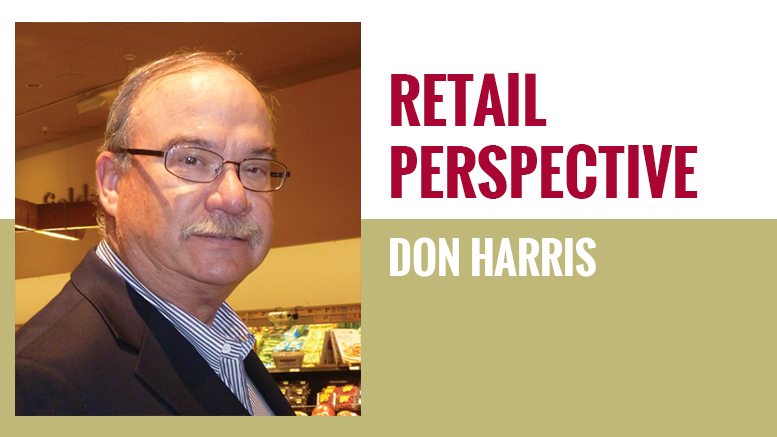Tech Versus Networking
April 1, 2017 | 3 min to read
In the produce industry, personal relationships are crucial, with deals traditionally made through handshakes and trust. However, a trend towards impersonal communication methods threatens this foundational approach. New executives, influenced by other industries, favor digital transactions over face-to-face interactions, which could diminish authenticity. The article emphasizes the need for industry veterans to mentor the next generation in maintaining these vital connections, blending traditional relationship-building with technological advancements to ensure the industry's unique identity and continued success.

 During conversations with management concerning attendance at industry trade shows, the question often comes up from management as to why it is necessary to attend in person. The common reply from the produce person is that it is an opportunity to meet with customers and “network” to improve relationships. Management counters with the statement there are plenty of ways to communicate with others, including Facebook, Twitter, Snapchat and email, that are far cheaper than the cost of attending these shows in person. As in other matters, management once again demonstrates “they just don’t get it!”
During conversations with management concerning attendance at industry trade shows, the question often comes up from management as to why it is necessary to attend in person. The common reply from the produce person is that it is an opportunity to meet with customers and “network” to improve relationships. Management counters with the statement there are plenty of ways to communicate with others, including Facebook, Twitter, Snapchat and email, that are far cheaper than the cost of attending these shows in person. As in other matters, management once again demonstrates “they just don’t get it!”
It just so happens the produce industry behaves differently than most others. Throughout its history, it has been a truly personal industry where deals are consummated with a simple handshake, and “your word is your bond.” This arrangement is based on personal relationships between the parties on both sides of the distribution channel. It is this personal-relationship-driven activity that defines the uniqueness and success of the produce food channel. In recent times, it seems the industry is placing a lot of emphasis on speed of communication and the removal of personal relationships. I believe this is a mistake and if not rectified, it could lead to turning the produce business as we know it into a numbers-driven, impersonal activity. It is certainly no coincidence that the operations at retail and throughout the supply chain that continue to be successful and drive their businesses engage in the cultivation and promotion of personal relationships with customers.
We all recognize the value of these industry gatherings as opportunities to meet face-to-face with customers and spend quality time discussing mutual relationships. The “networking” time spent at these gatherings is invaluable in the development of these types of relationships. The simple fact more and more of these gatherings are popping up across the country illustrates their value. There is nothing better than discussing business opportunities with your customers and seeing their eyes light up, or the excitement reflected in their voice, at the mention of an opportunity. No email, text or posting can provide such insight. These personal exchanges provide extremely valuable insights into a customer’s needs and wants concerning their business operation. By establishing personal relationships with your customers, you begin to build trust between their operation and yours. This has been a well-established formula for success for many years.
“By establishing a personal relationship with your customer you begin to build trust between their operation and yours.”
In the past few years the industry has experienced an influx of personnel from industries outside the produce world, especially from the CPG industry. While this type of infusion of new blood is a good, the concern is influxes of this nature will alter the produce business into the image of another industry. It seems the newer executives entering the produce industry are trying to adopt the methodology from former employers and convert the produce industry.
These disruptors are trying to turn produce into a simple numbers game using figures and processes to drive presentation and sales. Common methods include communications with customers via purchase orders, faxes, emails and any other method that does not involve personal contact. A phone call is an extremely rare occurrence from some of these individuals, as they seem to prefer the impersonal approach with customers. They seem to be adverse to any kind of personal contact or conversation, and instead rely on the cyber world. This is something that the industry should be greatly concerned about and should not allow. By taking proactive steps to incorporate some of these new technologies, and coupling with the proven benefits of personal relationships, it would ensure the industry’s continued success and growth.
Perhaps the veterans in the industry (myself included) did not do a good enough job of mentoring the upcoming generation of leaders on the benefits of personal relationships that are the foundation of the industry. Regardless of the reason, there is still time to work together to restore the vital nature of the industry by continuing the emphasis on personal exchanges between both sides of any equation and the incorporation of new technology to enhance these interactions.
The “old school” veterans and new industry entrants need to work together to maintain and nurture the unique nature of the produce industry to ensure the continued success we have all enjoyed. It may seem old-fashioned to want to maintain our industry’s successful growth, as well as identity and function, but to lose its unique and personal characteristics would be a loss we can’t afford.
14 of 18 article in Produce Business April 2017

